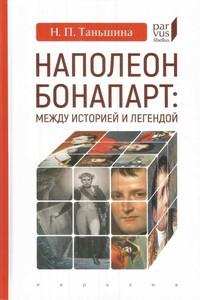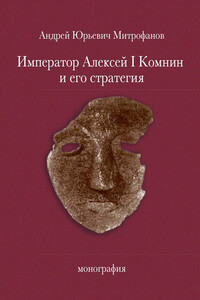Английский язык для специальных и академических целей: Международные отношения и зарубежное регионоведение. Часть 1 - [84]
Another huge disruption would be to trade beyond Europe. Britain would swiftly have to negotiate bilateral deals with dozens of countries. The experience of Iceland, Liechtenstein, Norway and Switzerland, which make up the European Free Trade Association (EFTA), a club of European refusers loosely linked to the EU, suggests it is usually possible to obtain similar terms to those won by EU negotiators. The EFTA countries tend to rush in behind the EU, though in some cases — South Korea, for example — they go first. But the bigger club can win slightly better terms. “The EU is more powerful than we are,” says Didier Chambovey of Switzerland's state secretariat for foreign affairs. A deal with Britain would be top of few countries' priorities.
Britain would have less diplomatic and military clout, too. For the Americans, a Britain that is disengaged from the rest of Europe would be a much less useful and influential ally. For NATO, a Britain that is semi-detached from Europe would weaken the ties that bind the continent and its defence to the United States at a time when those ties are already under strain because of slashed defence budgets and America's strategic “rebalancing” towards Asia. Another likely casualty would be the budding Anglo-French defence treaty, seen by both countries as a way to help themselves continue to punch above their weight.
Although a complete exit from Europe is certainly possible, few British Eurosceptics want it. They view the common market as a pearl surrounded by a dismal encrustation of European bureaucracy and regulation. What they would really like to do is pull back until Britain's relationship with Europe becomes one based on free trade, with the minimum necessary regulation. In effect, they want to create the kind of Europe that British Conservatives fought to join in the 1970s. Once it became clear that Britain was falling out of the EU, they could grab at two halfway options: a Norwegian one and a Swiss one.
Together with Iceland and Liechtenstein, oil-rich Norway is about as close to the EU as it is possible to be without actually becoming a member. It simply belongs to the EEA. The EU is broadly happy with the arrangement, partly because Norway pays into its coffers (indeed, it pays slightly more per head than Britain). A similar arrangement might well be obtained.
Many businesses would hardly notice the difference. But a few would suffer minor irritation. Although EEA countries are part of the single market, businesses must complete customs and VAT forms when goods are shipped into and out of the EU. For big companies serving big customers, this is no problem. For smaller ones it can be a nuisance. Moods of Norway, an echt-Norwegian fashion company (its logo is a tractor), has solved the problem by setting up a small subsidiary in Sweden, which is a member of the EU. The subsidiary handles customs clearance for the European boutiques that carry Moods of Norway's clothes. Small, export-oriented British businesses would end up doing the same.
If Britain were to join the Norwegian club, though, it would remain bound by virtually all EU regulations, including the working-time directive and almost everything dreamed up in Brussels in future. Once out of the EU, the country would have little say in the regulations and laws that would continue to bind its industry. It would be consulted by the European Commission but would have no voice in the increasingly powerful European Parliament, and no vote. In Euro-jargon, it would be a decision-shaper, but not a decision-maker.
The Reader
Officials and lobbyists would frequently be unaware of discussions about legislation that could affect British industry, except at second hand, through officials in a friendly nation. “We take our Scandinavian colleagues out to lunch and ask them what happened,” explains Petter Brubakk of NHO, Norway's main business lobby. It would depend on other countries to fight its corner, as Norway now relies on Britain to resist proposed EU legislation on offshore oil-drilling. It would be as though Britain maintained a golden fax machine linked to Brussels, which cost billions of pounds a year to run and from which regulations issued ceaselessly. It could ignore the faxes about farming and fishing: members of the EEA are allowed to run their own agriculture policies. But it would have to obey the others.
The Norwegian option could well fail for domestic reasons. As soon as British MPs learn that Norway has to swallow almost every regulation that comes out of Brussels, despite having virtually no power to shape them, they will waver. When they also learn that Norway has to pay for the privilege, they may reject it outright.
Britain might, however, seek a more distant relationship. It could steer clear of the EEA but join EFTA, which it helped to set up in 1960. Optimistically, it could come to look rather like Switzerland.
Switzerland does business with EU countries through bilateral deals, and by routinely aligning its regulations with those made in Brussels. To an extent, it can pick and choose. In the same position, Britain could drop some irksome labour rules. It could also move to co-operate more, and trade more freely, in some areas than in others. Switzerland has a comprehensive bilateral agreement with the EU covering trade in goods, but no equivalent agreement for financial services.

Наполеон притягивает и отталкивает, завораживает и вызывает неприятие, но никого не оставляет равнодушным. В 2019 году исполнилось 250 лет со дня рождения Наполеона Бонапарта, и его имя, уже при жизни превратившееся в легенду, стало не просто мифом, но национальным, точнее, интернациональным брендом, фирменным знаком. В свое время знаменитый писатель и поэт Виктор Гюго, отец которого был наполеоновским генералом, писал, что французы продолжают то показывать, то прятать Наполеона, не в силах прийти к окончательному мнению, и эти слова не потеряли своей актуальности и сегодня.

Монография доктора исторических наук Андрея Юрьевича Митрофанова рассматривает военно-политическую обстановку, сложившуюся вокруг византийской империи накануне захвата власти Алексеем Комнином в 1081 году, и исследует основные военные кампании этого императора, тактику и вооружение его армии. выводы относительно характера военно-политической стратегии Алексея Комнина автор делает, опираясь на известный памятник византийской исторической литературы – «Алексиаду» Анны Комниной, а также «Анналы» Иоанна Зонары, «Стратегикон» Катакалона Кекавмена, латинские и сельджукские исторические сочинения. В работе приводятся новые доказательства монгольского происхождения династии великих Сельджукидов и новые аргументы в пользу радикального изменения тактики варяжской гвардии в эпоху Алексея Комнина, рассматриваются процессы вестернизации византийской армии накануне Первого Крестового похода.

Виктор Пронин пишет о героях, которые решают острые нравственные проблемы. В конфликтных ситуациях им приходится делать выбор между добром и злом, отстаивать свои убеждения или изменять им — тогда человек неизбежно теряет многое.

«Любая история, в том числе история развития жизни на Земле, – это замысловатое переплетение причин и следствий. Убери что-то одно, и все остальное изменится до неузнаваемости» – с этих слов и знаменитого примера с бабочкой из рассказа Рэя Брэдбери палеоэнтомолог Александр Храмов начинает свой удивительный рассказ о шестиногих хозяевах планеты. Мы отмахиваемся от мух и комаров, сражаемся с тараканами, обходим стороной муравейники, что уж говорить о вшах! Только не будь вшей, человек остался бы волосатым, как шимпанзе.

Настоящая монография посвящена изучению системы исторического образования и исторической науки в рамках сибирского научно-образовательного комплекса второй половины 1920-х – первой половины 1950-х гг. Период сталинизма в истории нашей страны характеризуется определенной дихотомией. С одной стороны, это время диктатуры коммунистической партии во всех сферах жизни советского общества, политических репрессий и идеологических кампаний. С другой стороны, именно в эти годы были заложены базовые институциональные основы развития исторического образования, исторической науки, принципов взаимоотношения исторического сообщества с государством, которые определили это развитие на десятилетия вперед, в том числе сохранившись во многих чертах и до сегодняшнего времени.

Эксперты пророчат, что следующие 50 лет будут определяться взаимоотношениями людей и технологий. Грядущие изобретения, несомненно, изменят нашу жизнь, вопрос состоит в том, до какой степени? Чего мы ждем от новых технологий и что хотим получить с их помощью? Как они изменят сферу медиа, экономику, здравоохранение, образование и нашу повседневную жизнь в целом? Ричард Уотсон призывает задуматься о современном обществе и представить, какой мир мы хотим создать в будущем. Он доступно и интересно исследует возможное влияние технологий на все сферы нашей жизни.